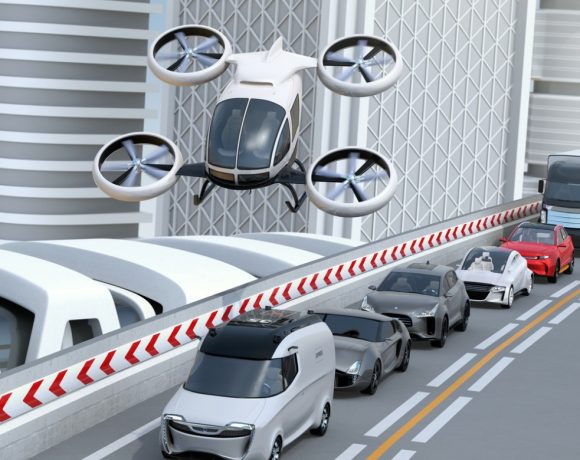- The electric vehicle market in India now has a $300 billion business opportunity and is poised to grow at a CAGR of 37 per cent by 2023.
- Charging infrastructure is one of the key components to accelerate adoption of EVs in India. At present, there are only 150 charging stations in India but the government is offering subsidy to states to deploy 5000 charging stations in cities and highways.
- While carmakers around the world have been focusing on electric cars in the premium segment, India is targeting smaller vehicles.
Electric vehicles (EVs) have disrupted the Indian automobile market in the last five years. So much so, that the Indian government is now aggressively pushing for mass electrification of vehicles – both personal and commercial by 2030. With people becoming more conscious of the environment, our depleting natural resources and the inordinate rise in carbon footprints, sales of electric vehicles have suddenly increased. However, it still constitutes only 1% of the total sale but has a potential to grow to more than 5% in a few years.
Opportunities and challenges for global players in EV industry
According to McKinsey, by 2021, almost 50 per cent of the new car models will be electrically equipped. The electric vehicle market in India now has a $300 billion business opportunity and is poised to grow at a CAGR of 37 per cent by 2023. This provides great prospects for all types of global players in the EV space – vehicle makers, battery makers, integrators, software makers, component makers, materials researchers and the likes. Let us look at three such opportunities:
Component and OEM manufacturing
With the global investment in and the demand for EV increasing, Original Equipment Manufacturers (OEM) have begun expanding their capacities either by themselves or through industry bodies. The Japanese, Korean and European industry bodies are hyper-active in India right now and are countering the Chinese Cost Comparative Advantage (CCA) by already using their expertise in the automobile space.
EV charging infrastructure
Charging infrastructure is one of the key components to accelerate adoption of EVs in India. According to the Press Information Bureau, the government has earmarked Rs 1000 crore for the next three years (2019-2022) to establish charging infrastructure in India. At present, there are only 150 charging stations in India but the government is offering subsidy to states to deploy 5000 charging stations in cities and highways. Global players thus, have a lot of opportunity, given the ministry has delicensed the setting up of public charging stations (PCS), as long as the technical standards are met.
Mobility as a service
According to a Morgan Stanley report, India is likely to be a leader in the shared mobility space by 2030, given its large, young and digitally connected population.
Currently, we have the shared –Uber and Ola– and the rented- Zoomcar, Myle- in the mobility service space. Says Avik Chattopadhyay, automobile industry expert, “Another type to come is leasing, which is already being done by the luxury brands. The millennial does not like to “own” but to “use” and “experience” as and when required / desired. A trend currently in the metros will soon percolate to the towns, as that will be seen to be smart and modern. Therefore, as a business potential, it is unending.” With this, there will be a rise in aggregators with the rise of the sharing economy.
Considering India is still a nascent EV industry, it is still grappling with some challenges in infrastructure, deployment and pricing.
Vehicle-Grid Integration
Technically known as V2G, it is primarily being developed in Europe and Japan. The idea is for parked vehicles to be able to send electricity back in to the power grid. These are smart chargers, which enable load balancing with the aid of Battery Management Systems (BMS) when the vehicles are not being used for a long time. There is potential for the EVs and their batteries to double up as a storage device for renewable energy. However, the country is currently facing its biggest challenge in making the ‘one nation-one grid’ a reality. The Energy Efficiency Services Ltd (EESL) is seeking innovative solutions in grid management and energy storage.
Electric Vehicle deployment
India’s ambitious plan to have 100% electric vehicles on the road may just be a distant dream. State governments will have to adopt and align their transport and power policies to that of the central government to complete the EV project successfully.
“All oil companies have been asked to transform into “energy” companies and are gearing up to modify fuel stations to incorporate EV charging points. All major organisations in this field are in India, mostly undertaking prototype testing and cluster-charge testing with EESL, state transport corporations and municipal corporations,” says Chattyopadhyay. At present however, India doesn’t have a policy to reuse or recycle batteries and this can prove to be a weak link. The government will need to focus on it if they want to achieve the electrified mobility target.
Policy push by the government to drive change
While carmakers around the world have been focusing on electric cars in the premium segment (costing over ₹10 lakh), India is targeting smaller vehicles. According to NITI Aayog, 79% of vehicles on Indian roads are two-wheelers, while three-wheelers and cars costing less than ₹10 lakh account for 4% and 12% of the vehicle population, respectively. Concentrating on small EVs will help meet domestic demand and push India to become a global leader in this segment.
As for the challenges in charging infrastructure, the government is pushing aggressively through subsidies to ease the deployment of charging stations. Lack of infrastructure is one of the prime reasons that private owners, aggregators as well as commercial vehicle manufacturers shy away from investing in EVs. International manufacturers thus, have the perfect opportunity to bring in their expertise, assist in the set up and maintenance of charging stations and contribute to faster EV adoption in India.






NO COMMENT